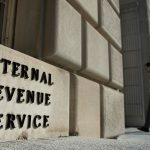The IRS has announced that beginning Jan. 1, 2024, businesses that are required to file Form 8300, Report of Cash Payments Over $10,000, may be required to file electronically instead of filing a paper return.
Cash Reporting Requirements
Under U.S. law, any individual or business who receives more than $10,000 in one transaction or a series of related transactions while conducting their trade or business must report it to the government by filing a Form 8300.
For purposes of the form, the term “cash” means money. Money can mean currency and coins of the United States and any other country. Cash also includes certain monetary instruments like a cashier’s check, bank draft, traveler’s check, or money order if it has a face amount of $10,000 or less and it has been received as part of a designated reporting transaction or as part of a transaction in which the recipient knows the payer is trying to avoid the reporting requirement. Personal checks are not considered cash.
To be clear, it is not illegal to deal in cash—even if those dollars are significant. The idea of reporting large transactions that enter the country (via a FinCEN 105); are deposited or exchanged at banks or other financial institutions (via FinCEN 104); or are received in the course of a trade or business (via Form 8300) is to ensure that those dollars are properly reported and taxed. Money that is “dirty,” meaning that it was from illegal sources, is more difficult to circulate and exchange for “clean” money if reported. Similarly, it’s easier to ensure that funds are reported to the taxation authorities, if appropriate, when taxpayers are aware that the feds know that those funds exist.
The rules are meant to ensure a level playing field for everyone, ensuring that high dollar transactions aren’t exempt from the same tax rules as others simply by transferring them in cash or cash equivalent.
E-Filing Requirements
The new e-filing requirements are the result of final regulations for filing and amending returns and other documents electronically following changes made by the Taxpayer First Act. T.D. 9972 affects filers of partnership returns, corporate income tax returns, unrelated business income tax returns, withholding tax returns, certain information returns (including Forms 1099 and Forms W-2), registration statements, disclosure statements, notifications, actuarial reports, and certain excise tax returns.
The requirement impacts businesses that are required to file at least ten information returns other than Form 8300. For example, if a business files five Forms W-2 and five Forms 1099-INT, it must e-file all its information returns during the year, including Forms 8300. However, if the business files fewer than ten information returns of any type other than Forms 8300, then that business does not have to e-file the information returns and is not required to e-file Forms 8300.
The IRS has been ramping up efforts to facilitate e-filing as part of its Paperless Processing Initiative. While the FTA predates that initiative—and IRS Commissioner Danny Werfel’s tenure—it’s clear that the agency welcomes efforts to promote electronic filing and communication. For that reason, the IRS stressed that businesses that are not required to e-file may still choose to do so.
How To E-File
To file Forms 8300 electronically, you must set up an account with the Financial Crimes Enforcement Network’s BSA E-Filing System. If you need more help, call the Bank Secrecy Act E-Filing Help Desk at 866-346-9478 or email [email protected]. For more info, businesses can complete a technical support request at Self Service Help Ticket. The help desk is available Monday through Friday from 8 a.m. to 6 p.m. EST.
Waivers & Exemptions
If your business is required to file electronically but believes it would be an undue hardship, you can request a waiver by using Form 8508, Application for a Waiver from Electronic Filing of Information Returns. You must provide documentation, including required cost estimates or a written statement, justifying your waiver request.
If the IRS grants the waiver, it automatically applies to all Forms 8300 for the calendar year. However, since the request applies to all information returns, you may not request a waiver from filing only Forms 8300 electronically. When you file your paper returns, you must include the word “Waiver” on the center top of the first page of Form 8300 when submitting a paper filed return.
If using the technology required to e-file conflicts with your religious beliefs, you’re automatically exempt from filing Form 8300 electronically. However, you must include the words “RELIGIOUS EXEMPTION” on the center top of each Form 8300 (page 1) when submitting your paper filed return. You can still file Form 8508 with a statement that using the technology required to file electronically conflicts with your religious beliefs. If you do, the IRS will record your exemption in our records.
If you file information returns in paper form and receive a notice or other IRS correspondence proposing a penalty for the failure to file the returns electronically, you may reply to the penalty notice stating you are exempt from the electronic filing requirement due to your religious beliefs.
If you are required to e-file but file by paper and don’t have a waiver or religious exemption, you may be subject to a failure to file penalty.
Late returns
You normally must file Form 8300 within 15 days after the date the cash transaction occurred. If you file late, you must include the word “LATE” in the comments section of the return. A business filing a late Form 8300 on paper must write “LATE” on the center top of page 1 of each Form 8300.
Penalties
You may be subject to penalties if you fail to file a correct and complete Form 8300 on time and you cannot show that the failure was due to reasonable cause. You may also be subject to penalties if you fail to furnish timely a correct and complete statement to each person named in a required report. A minimum penalty of $25,000 may be imposed if the failure is due to an intentional or willful disregard of the cash reporting requirements.
Record-keeping
Your business must keep a copy of every Form 8300 it files and any supporting documentation for five years from the date filed.
Those record keeping requirements also apply to the required statement you must send to customers. As part of your filing requirements, you must give a written or electronic notice to each person named on a required Form 8300 on or before Jan. 31 of the year following the calendar year in which the cash is received. The statement must show the name, telephone number, and address of the information contact for the business, the aggregate amount of reportable cash received, and that the information was furnished to the IRS. Keep a copy of the statement for your records.
When you file electronically, you’ll receive a confirmation that the form was filed. However, the IRS notes that e-file confirmation emails alone don’t meet the record keeping requirement. You must also save a copy of the form before finalizing the form submission, along with your confirmation number. Before finalizing the form for submission, businesses should keep a copy of the form electronically or print a copy.
More Information
For more information about the new reporting requirement, check out the Form 8300 reporting page on IRS.gov. Additionally, the IRS has created a video (it has two parts, Part I and Part II). The video points out sections of Form 8300 for which the IRS commonly finds mistakes and explains how to accurately complete those sections.
Read the full article here




